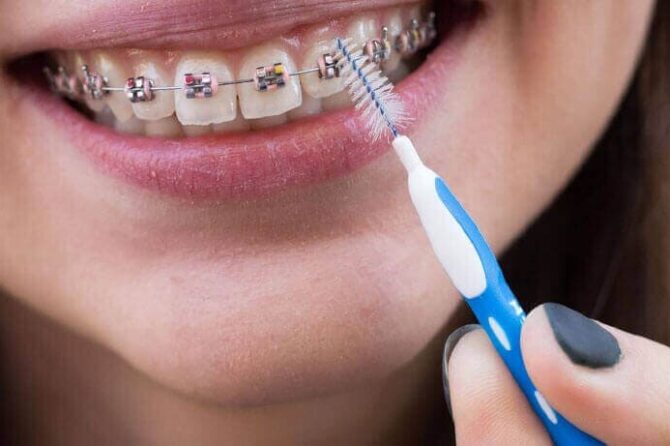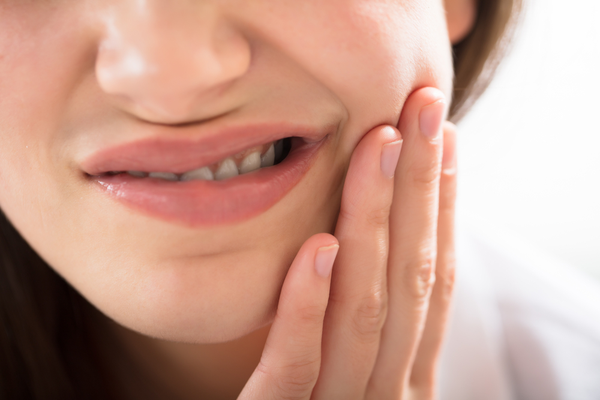
poor oral hygiene with braces
Consequences Of Poor Oral Hygiene With Braces-
“Don’t let poor oral hygiene ruin your beautiful smile!”
Are you one of those who think poor oral hygiene only leads to cavities and gum disease? If so, you’re in for a nasty surprise.
Poor oral hygiene can lead to many problems, including receding gums. Yes, receding gums can be caused by poor oral hygiene habits, and they’re not something you want to deal with. So if you’re looking for ways to keep your smile looking its best, practice good oral hygiene habits. Taking good care of your mouth and teeth while wearing braces is extremely important to keep them healthy. Without good oral hygiene, bacteria form in the mouth and can destroy the tissue that supports your teeth.
In today’s blog post, we’ll discuss some consequences of poor oral hygiene with braces. We hope this information helps you protect your smile!
Why is dental hygiene so important?
Oral health is essential for everyone’s overall health, and good oral hygiene is essential. It ensures you can speak clearly, enjoy food, chew and swallow properly, and smile confidently. Moreover, regular dental check-ups help your dentist detect any problems early on.
According to a recent report from the National Governors Association, “The American population faces disproportionate dental problems, particularly among low-income and minority populations.” The report highlights the importance of basic dental care for everyone, but basic dental care is out of reach for many people. Increasing access to affordable dental care is a great way to address the problem.
Role of Dentist:
The dentist can detect problems early, such as cavities, broken fillings, and gum disease. By regularly visiting a dentist, you can get these problems treated before they become more serious, requiring root canals, gum surgery, or removal of your teeth. As an added benefit, dental cleanings also help keep your mouth fresh and odor-free.

The Negative Impacts of Poor Oral Hygiene:
People with braces are more prone to gum disease and tooth decay. These conditions can affect a person’s overall health and quality of life. When teeth are not properly cared for, they can develop gum disease and cavities, which may eventually require the removal of braces. In addition, improper oral hygiene with braces can lead to discoloration of teeth. This is why it is crucial to practice good oral hygiene.
Proper oral hygiene is essential for maintaining a beautiful smile. Patients who follow the recommended oral hygiene habits while wearing braces have the potential to achieve beautiful, straight teeth. This is a major benefit of orthodontic treatment but requires increased dedication and discipline to maintain oral hygiene.
In addition, oral hygiene is a major risk factor for dental problems, including gingivitis, cavities, and periodontal bone loss.

Halitosis:
A lack of proper oral hygiene also increases the risk of developing white spots, also known as halitosis. Many people with braces experience this condition, and it can be made worse by the difficulty of brushing around them. Poor oral hygiene causes bacteria to feed on food debris, creating an acidic environment in the mouth.
Gingivitis:
In addition to cavities, poor oral hygiene can lead to other dental problems. Bacteria that grow in unhealthy teeth can travel to other body parts. This can lead to heart disease and diabetes. These negative consequences can be long-lasting. You can avoid painful dental procedures while keeping your teeth beautiful and healthy by taking care of your oral health.
Practicing proper oral hygiene can prevent and delay the development of gum disease, which is one of the most common consequences of poor oral hygiene. This infection starts as gingivitis or the inflammation of the gums. The symptoms include bleeding, redness, and swelling. If it becomes severe, it may even lead to tooth loss. To prevent this, practice proper oral hygiene during your orthodontic treatment.

Periodontitis:
Having braces can pose some challenges to good oral hygiene. Poor oral hygiene can lead to several unpleasant and costly dental procedures. You must brush and floss regularly to prevent plaque buildup. If plaque is not removed regularly, it can lead to tooth decay and gingivitis.
Poor oral hygiene can lead to periodontal pockets, which are almost impossible to clean on your own. This allows plaque and bacteria to accumulate and cause inflammation. As this inflammation progresses, you increase the risk of developing periodontitis, which can lead to the loss of teeth. Proper oral hygiene can balance the oral microbiome and prevent periodontal disease.
Decalcifications:
If you have braces on your teeth, the consequences of poor oral hygiene can be severe. You will need to brush and floss daily to avoid plaque buildup and tooth decay. The acid produced by plaque and food acids can cause enamel to break down. This can lead to white patches on teeth, which indicate early tooth decay. This is a serious condition that requires professional care.
People with braces are particularly susceptible to plaque, a colorless film of bacteria that sticks to the teeth. The bacteria that live on plaque convert the sugars in food into acid. These acids cause tooth decay and gum disease. They may also lead to permanent stains.
- Brushing your teeth is necessary:
For the best oral hygiene with braces, it is important to use an electric toothbrush or a specially designed brush head. It is best to brush at least twice a day for at least two minutes. You should also floss regularly and reduce your sugary drinks and snacks intake.
Children with braces need to maintain good oral hygiene. They need to brush and floss every time they eat or drink. Otherwise, they might have cavities and will have to see an orthodontic specialist. The specialist will be able to clean the cavities and replace the wires and brackets to avoid painful tooth decay.

Yellowing of teeth:
When you wear braces, it isn’t easy to brush and floss your teeth properly. As a result, food and bacteria can get trapped in your mouth, which leads to a buildup of plaque and tartar. Plaque is a sticky film that forms on your teeth when bacteria mixes with saliva, while tartar is hardened plaque left on your teeth for too long. Not only can plaque and tartar cause yellowing, but they can also lead to gum disease, cavities, and bad breath.
- What can you do about it?
The good news is that there are things that you can do to prevent yellowing while you’re wearing braces:
- First and foremost, you need to make sure that you’re brushing and flossing regularly.
- You should also avoid sugary and acidic foods, drinks, and tobacco products.
- In addition, you should see your dentist or orthodontist for regular check-ups so that they can clean your teeth and assess the condition of your braces.

Bad Breath:
Bad breath is another common side effect of poor oral hygiene. When you don’t brush or floss regularly, plaque and bacteria build up in your mouth, causing an unpleasant odor. Food particles trapped in your braces can also contribute to bad breath.
To freshen your breath, brush at least twice a day with fluoride toothpaste and floss once daily to remove plaque between your teeth and under your gum line. You may also want to use a mouthwash or chew sugar-free gum after meals to freshen your breath. And be sure to see your dentist for regular cleanings so they can remove any built-up tartar contributing to bad breath.

Professional dental cleaning is very important:
Dental cleanings are important for good oral hygiene, especially if you have braces on your teeth. The dentist should clean your teeth at least twice a year to keep them healthy. Although brushing and flossing your teeth is important; you may miss the hard-to-reach areas.
Flossing is especially important to remove plaque between teeth and the gum line. It is also important to visit a dentist every six months to clean your braces. You should also be careful of certain foods since these can damage your braces and require repeated repairs. These foods include nuts and hard lollipops, damaging the bracket wires.
Regular cleanings help prevent cavities and gum disease. The dentist will clean your teeth using special tools designed for this purpose. Moreover, they will examine the gums and assess their health. Regularly visiting a dentist can keep your teeth and gums healthy for a long time.
Frequently asked questions:
Why is oral hygiene important with braces?
Oral hygiene is important with braces because if you do not keep your teeth and gums clean, you can develop cavities and gum disease. Gum disease can cause the gums to become inflamed and bleed. It can also damage the bones that support your teeth. Cavities are holes in your teeth that can become infected. If the infection spreads, it can lead to pain, tooth loss, and even death.
How do I brush my teeth with braces?
To brush your teeth with braces:
- Use a soft-bristled toothbrush and fluoride toothpaste.
- Angle the toothbrush towards the gum line and use gentle circular motions.
- Brush all your teeth, including the inside surfaces of your front teeth. You may find it helpful to use an electric toothbrush.
How do I floss my teeth with braces?
You will need to use a floss threader to floss your teeth with braces. This is a small, flexible plastic piece with a loop on one end. Thread the floss through the loop, and then insert the floss under the wire of your braces. Gently move the floss up and down between each tooth. Be sure to floss all surfaces of your teeth, including the inside surfaces of your front teeth.
Poor oral hygiene can lead to several consequences for people with braces, from staining and bad breath to gum disease and decalcification. However, these problems can be avoided by brushing twice daily, flossing daily, visiting your dentist regularly, and taking other preventive measures. So don’t neglect your oral hygiene just because you have braces!
If you have braces, it’s important to take extra care of your teeth and gums. Poor oral hygiene can lead to gum disease, which can be painful and difficult to treat. Dental pro 7 is a natural way to fight gum disease and keep your smile healthy. Made with herbal extracts and essential oils, Dental pro 7 is safe for use with braces and will help keep your gums healthy and your smile looking great.
Leave a reply